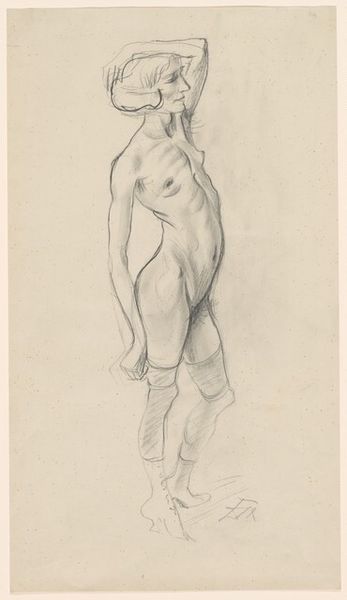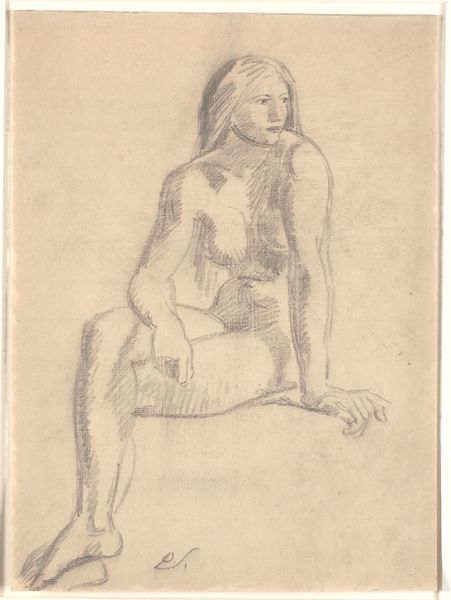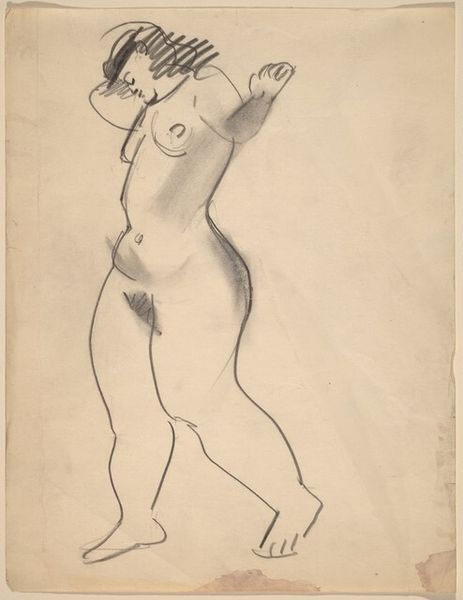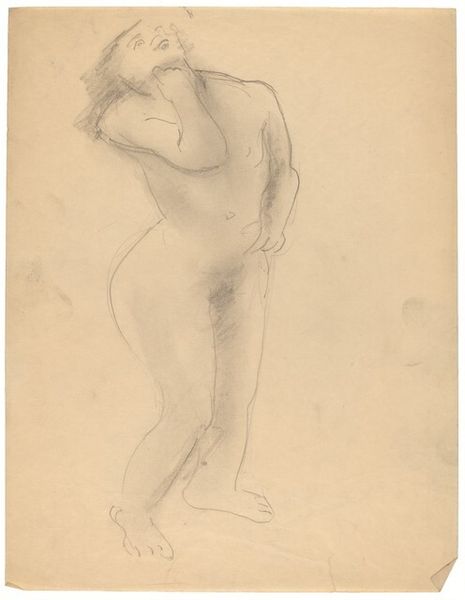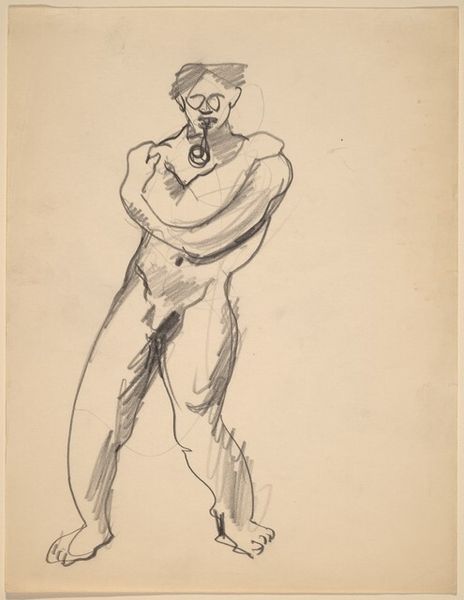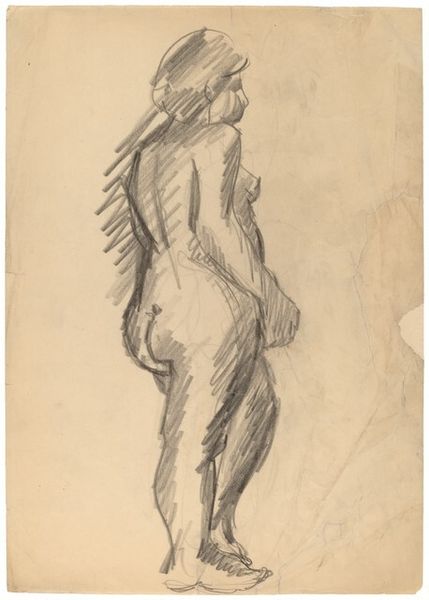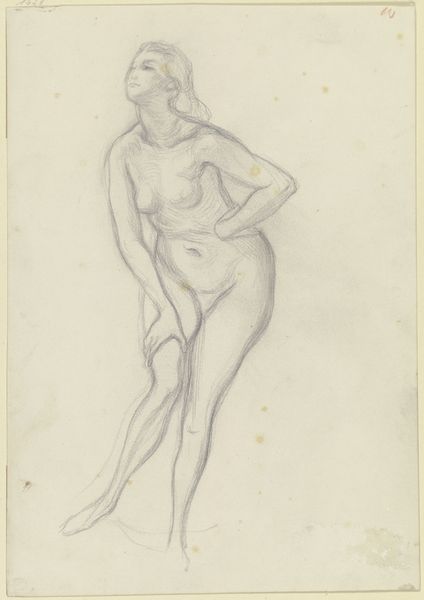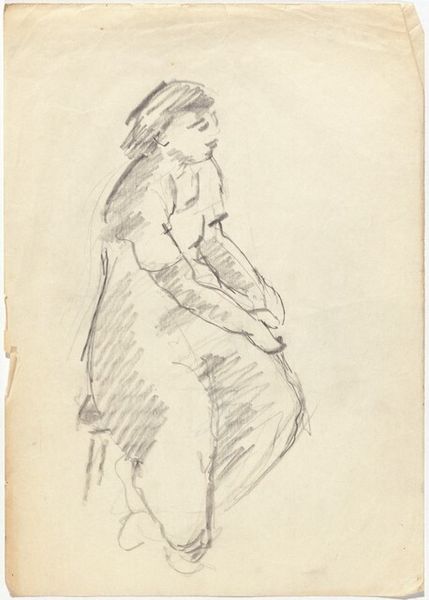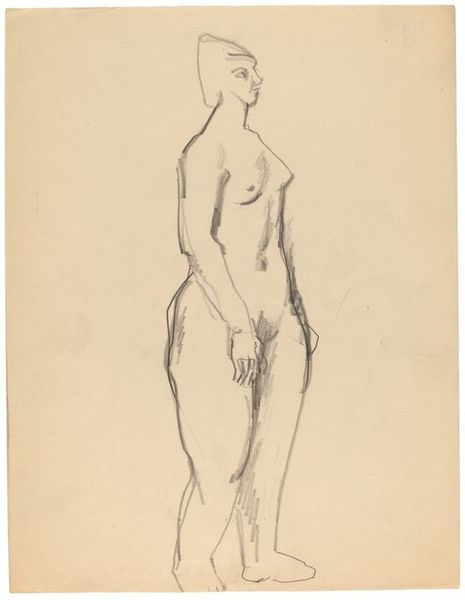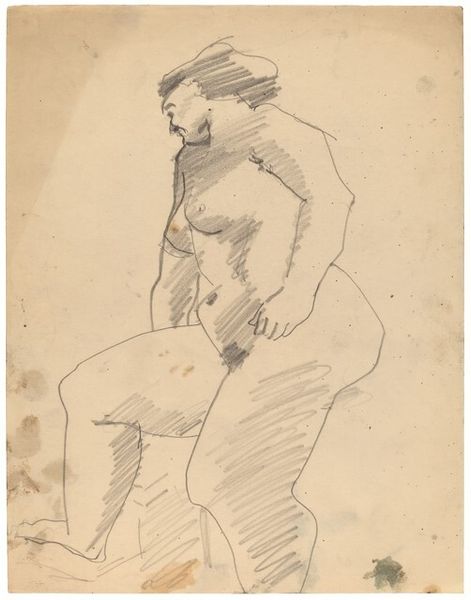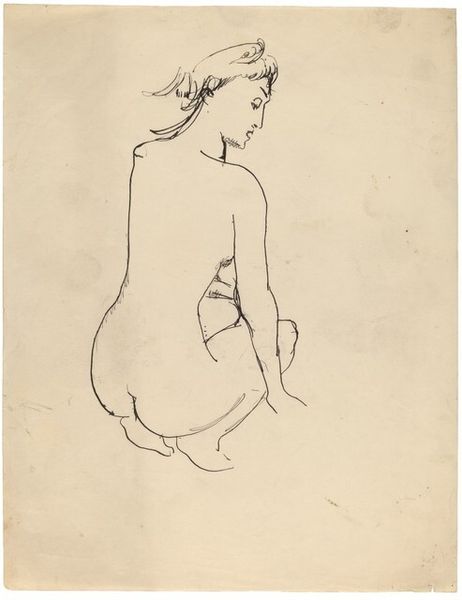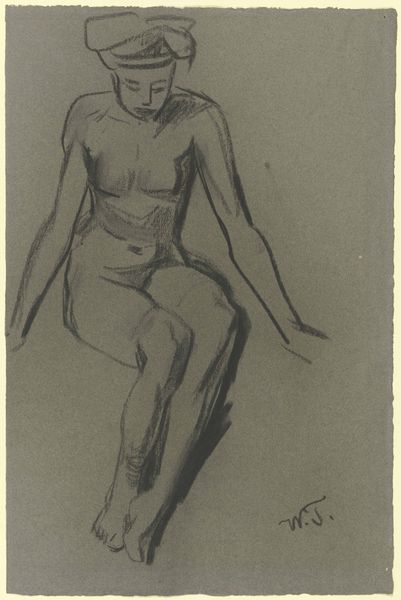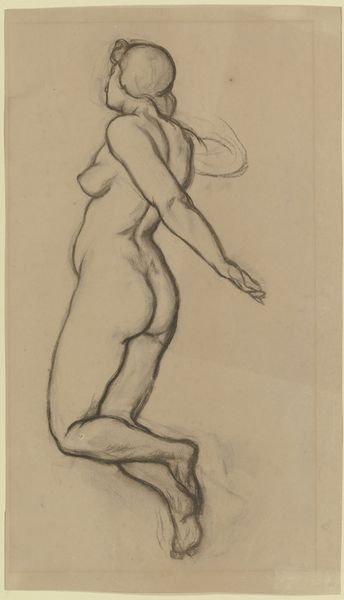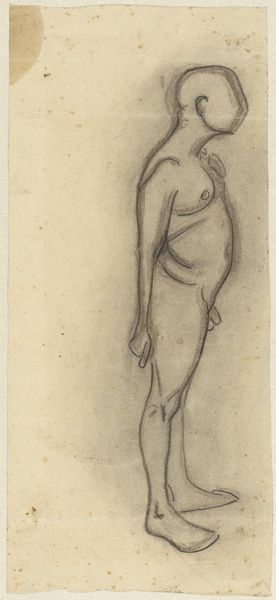![Standing Nude, Three-quarter View Facing Right, Head Turned to Viewer [recto] by Mark Rothko](/_next/image?url=https%3A%2F%2Fd2w8kbdekdi1gv.cloudfront.net%2FeyJidWNrZXQiOiAiYXJ0ZXJhLWltYWdlcy1idWNrZXQiLCAia2V5IjogImFydHdvcmtzL2M1YzhmMzRkLTBkNjMtNDViYS04ZjI2LWRiYjQ4MDVhMGU2NS9jNWM4ZjM0ZC0wZDYzLTQ1YmEtOGYyNi1kYmI0ODA1YTBlNjVfZnVsbC5qcGciLCAiZWRpdHMiOiB7InJlc2l6ZSI6IHsid2lkdGgiOiAxOTIwLCAiaGVpZ2h0IjogMTkyMCwgImZpdCI6ICJpbnNpZGUifX19&w=1080&q=75)
Standing Nude, Three-quarter View Facing Right, Head Turned to Viewer [recto]
0:00
0:00
drawing
#
drawing
#
figuration
#
nude
Dimensions: sheet: 27.94 × 21.59 cm (11 × 8 1/2 in.)
Copyright: National Gallery of Art: CC0 1.0
Editor: Here we have a drawing titled "Standing Nude, Three-quarter View Facing Right, Head Turned to Viewer" by Mark Rothko. It looks like a charcoal or pencil sketch, very simple. The figure seems vulnerable but also self-possessed. How do you read this piece, given Rothko's later move to abstraction? Curator: Well, it's tempting to see this drawing as an early grappling with themes Rothko would later explore abstractly: the human condition, vulnerability, and presence. Look at the figure's averted gaze, the subtle tension in the posture. Do you feel a certain unease, a quiet rebellion against the male gaze inherent in the nude form? Editor: I do, actually. It feels very different from, say, a classical nude, where the figure is often presented for the viewer's pleasure. There's something… almost confrontational here, despite the seemingly demure pose. Curator: Exactly. Think about the time period – while undated, it reflects a period of social upheaval and evolving gender roles. Rothko, steeped in intellectual and political discourse, wouldn't have been blind to that. Perhaps this isn’t just a study of form, but a subtle critique of how women are seen and represented in art, filtered through a modernist lens? What do you think of its relation with contemporary art about feminism and female nudity? Editor: That’s a very interesting way to look at it, making it resonate with much more recent work that interrogates those same power dynamics. I initially saw vulnerability, but maybe it’s actually resistance, even defiance. Curator: Precisely! It shows how revisiting the work of even well-known artists can yield fresh insights when viewed through the lens of contemporary issues and social awareness. It encourages a more nuanced understanding. Editor: Absolutely, and it really changes how I see the artwork. Thanks for opening my eyes to the cultural and political contexts behind it. Curator: It’s a process of ongoing dialogue, a collective questioning that makes art history vibrant and relevant.
Comments
No comments
Be the first to comment and join the conversation on the ultimate creative platform.
